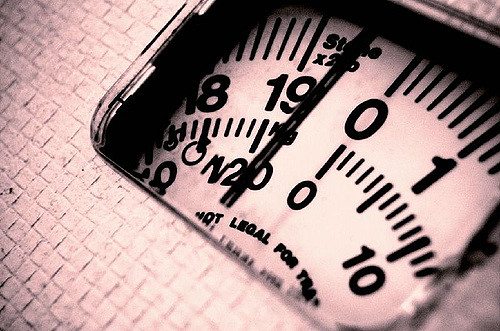TV Dinners: How healthy is How To Lose Weight Well?
We all have our guilty pleasures, and mine just happens to be playing trivial TV shows as white noise while I study. This is how, midway through my Channel 4 food show binge, I came across How to Lose Weight Well, a programme which through its name creates an illusion of a health-conscious approach to dieting. At first, absorbed in my course reading I didn’t quite notice how wrong my initial assumptions were – however, I was soon drawn away from my responsibilities and absorbed in the problematic premise.
In its opening credits, the show claims that “there’s always something to diet for: a holiday, a birthday, a wedding, or that most terrifying event of them all – the school reunion”. In each episode, the participants are divided into three groups: Crashers, Shape Shifters and Life Changers, all led by Doctor Xand van Tulleken and his team who assign them the ‘right’ diets to achieve their often-ambitious weight-loss goals. And this is the first problem with the show – what it seems to suggest is that in order to lose weight, one must have a particular reason, an event to look good for. In the episodes that I watched, there was only one mention of health reasons, but even then, one of the participants wanted to lose weight for his soon-to-be-born son, and not for himself.
What it seems to suggest is that in order to lose weight, one must have a particular reason, an event to look good for.
Such a superficial approach to dieting and weight loss is only reinforced with the quick-fix plans that many of the dieters are placed on, such as liquid food diets, commercial diet ‘chefs’, or more extreme approaches, such as a lady being told to only alter her existing food habits by drinking teaspoons of oil to suppress her appetite. Although all participants are successful in their bid to ‘shed pounds,’ there is no sense of a health-conscious approach, or any consequences undertaking such diets may cause. Moreover, at no point does the show warn its participants or the audience that returning to old eating habits after undertaking such unsustainable, extreme changes will result in immediate weight gain, reversing any ‘progress’ that might have been made over the duration of filming.

Are the show’s suggested methods to lose weight practical and sensitive? Credit: Rohit Mattoo
However, this style-over-substance ethos that the show adapts is not even its most troubling element. In each episode, Doctor van Tulleken sets himself a challenge of testing “some of the most hyped-up” weight-loss methods out there, many reminiscent of the pro-eating-disorder tips Internet users share within their communities, such as supposed zero-calorie foods, ice-cold baths, and more extreme methods, like that of starvation. Although during his 24-hour fast, van Tulleken’s response-levels are tested to see the effect starvation may have on his mind, this is approached from a very problematic angle, with the Doctor wondering whether he will be “a little bit stupider” than he normally is over the duration of the day. Finally, he decides that if “you’re operating heavy machinery or doing brain surgery, [it’s] probably not a great idea”, but “as long as you can stomach being irritable and unable to multitask…sensible fasting can clearly lead to weight loss”.
For someone like me, with history of personal experiences with eating disorders, this rung immediate alarm bells. Is advocating starvation on prime-time TV show watched by millions really the best way to approach dieting? A report commissioned by the charity Beat estimates that more than 725,000 people in the UK are affected by eating disorders, and these numbers don’t take into account undiagnosed instances. It is therefore extremely troubling to see an attempt at glorification of such methods by the show as an additional aid in losing weight. Not only does this trivialise the experiences of those directly affected by eating disorders, but it also puts in danger anyone susceptible to trying out these methods, which may in turn lead to developing a set of behaviours associated with eating disorders.
Is advocating starvation on prime-time TV show watched by millions really the best way to approach dieting?
With the show’s success reflected in glowing reviews from major tabloids and a book of techniques released for the public, it begs the question: should our chase for the ‘perfect body’ make us discount the negative effects these quick-fix dieting methods may have not only on our physical and mental health, but also our lives? How to Lose Weight Well most certainly seems to think so.

Comments